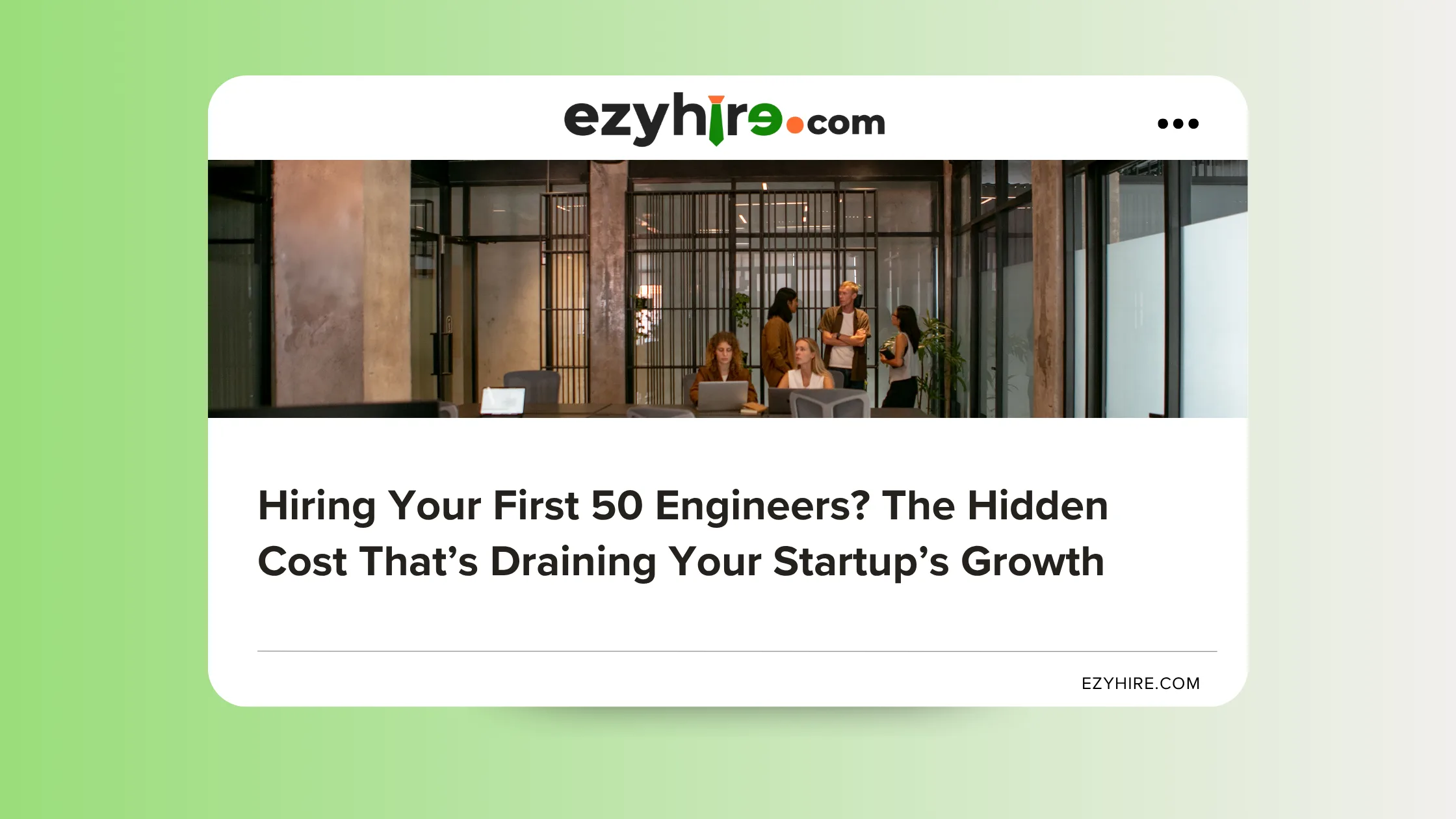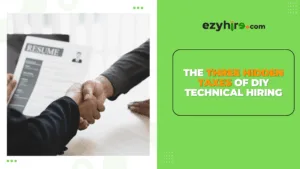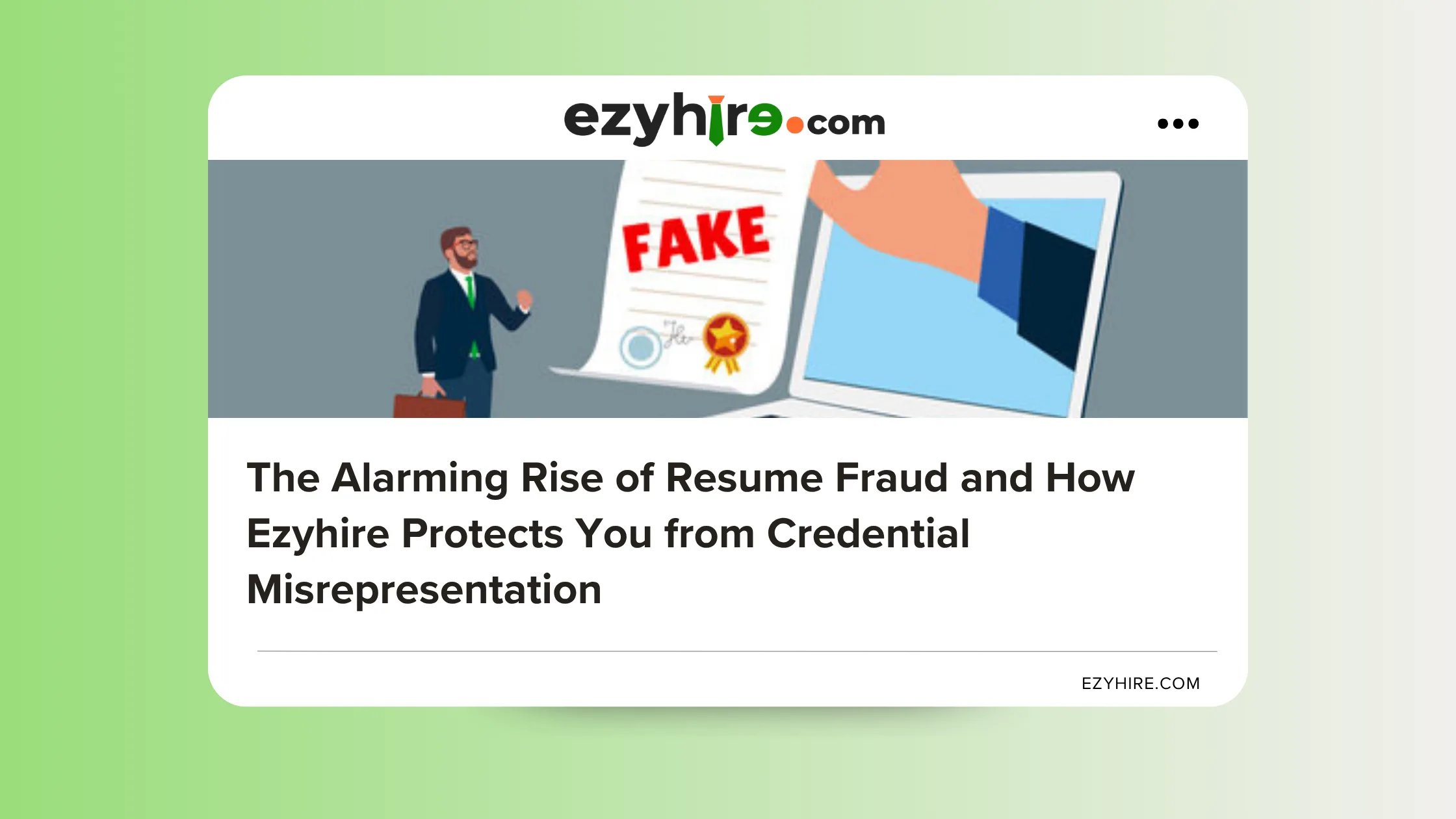As a founder, your time is the company’s most valuable asset. It’s the currency you use to build products, win customers, and raise capital. In the early days, your hands-on hustle, especially in hiring the first few engineers, is a superpower. But as you scale from a small team toward 50 engineers, that superpower becomes a trap. The DIY approach that got you here won’t get you there.
You’re already working 14-hour days, battling existential fires and pushing your vision forward. The conventional wisdom to spend up to half your time hiring feels impossible, yet the pressure to build your team is relentless. This is the scaling paradox: the more you succeed, the more the hiring process pulls you away from the very work that drives that success.
Continuing to personally interview every technical candidate isn’t a badge of honor; it’s a hidden tax on your company’s growth. It’s a drain on your time, a risk to your product quality, and a bottleneck that your competitors will exploit. For founders, especially non-technical ones, it’s time to stop being the chief interviewer and start being the architect of a scalable hiring engine.
The Three Hidden Taxes of DIY Technical Hiring
When you insist on running every technical interview, you’re paying a price that doesn’t show up on the balance sheet until it’s too late. These hidden taxes silently erode your runway, culture, and competitive edge.
1. The Opportunity Cost Tax: Your Most Expensive P&L Item
A founder’s time is not just time; it’s strategic capital. Every hour you spend in a technical interview is an hour you’re not spending on fundraising, closing a key customer, or refining product strategy. The numbers are unforgiving:
- Founders spend 25% of their workweek on hiring-related tasks, most of which are manual and repetitive.
- The opportunity cost of that time is estimated at an average of $1,000 per hour.
- With the average hiring process taking over 23 hours, you’re burning through tens of thousands of dollars in lost strategic value for a single hire.
For non-technical founders, this cost is even higher. You face the daunting task of evaluating deep technical skills you don’t possess, forcing you to rely on proxies and gut feelings that are both time-consuming and dangerously unreliable. This isn’t just inefficient; it’s a misallocation of your company’s most critical asset.
2. The Quality Tax: The High Price of a Bad Hire
A single bad technical hire is the most expensive mistake a startup can make. The cost isn’t just a wasted salary; it’s a virus that infects your productivity, morale, and product.
- The Financial Drain: A bad hire can cost up to 30% of their first-year salary, but for technical roles, the true replacement cost can be 100-150%. Factor in all indirect costs, and the total damage can exceed $240,000.
- The Productivity Collapse: Your existing team spends 20-30% of their time compensating for an underperformer, cleaning up their mistakes and redoing their work. For every three engineers, a bad hire effectively removes one from productive work.
- The Morale Meltdown: Nothing kills a high-performance culture faster than tolerating mediocrity. Your best engineers, the ones with the most options, become frustrated and are the first to leave, creating a devastating turnover spiral.
This isn’t just a hiring problem; it’s a direct threat to your runway and your ability to execute.
3. The Technical Debt Tax: Mortgaging Your Future for a Bad Decision
A bad hire doesn’t just write bad code; they inject high-interest technical debt deep into your product’s foundation. This is the hidden cost of choosing a fast, easy, or incompetent solution today that creates massive rework tomorrow.
- It Kills Velocity: Developers spend up to 33% of their time just dealing with the consequences of existing tech debt. Maintenance costs can increase by up to 60%, slowing down innovation and delaying your product roadmap.
- It Erodes Investor Confidence: When tech debt grinds development to a halt, you start missing milestones. Slipped deadlines are red flags for investors, suggesting a weak handle on execution and potentially impacting your next valuation.
- It Creates Security Risks: Poorly written code creates vulnerabilities. In regulated industries like FinTech or HealthTech, a single compliance failure can lead to millions in fines.
A bad hire mortgages your company’s future agility. You’re paying for their mistakes long after they’re gone.
The Strategic Offload: De-Risking Growth with Ezyhire’s Expert Assessment
The solution isn’t to work harder; it’s to build a smarter system. Ezyhire’s Expert Assessment is the Interview as a Service platform built specifically for founders who know they don’t need to be an expert to hire one. It’s your dedicated infrastructure for technical vetting, designed to neutralize the hidden taxes of DIY hiring and give you back your most valuable asset: time.
Here’s how Ezyhire’s targeted approach solves your biggest scaling pains:
- Reclaim Your Time Instantly: The process is simple. You submit your candidate’s details and job description. Ezyhire takes over from there, assigning a vetted industry expert to design and conduct a comprehensive interview. Within 24 hours, you receive a detailed report and a full video recording. The 23+ hours you would have lost are now yours to reinvest in growing the business.
- Ensure World-Class Quality: Ezyhire’s experts go far beyond surface-level questions. The evaluation is a multi-faceted deep dive that can include live coding assessments, code reviews, analytical challenges, and even psychological tests to ensure a perfect fit. With a library of over 350 assessments covering more than 500 specialized skills, we ensure your candidates are evaluated with a level of rigor you can’t replicate internally.
- Prevent Technical Debt Before It Starts: A bad hire introduces fragile architecture and quick hacks into your codebase. Ezyhire’s expert-led vetting process is the antidote. Our interviewers are seasoned professionals who identify candidates with a builder’s mindset—those who prioritize scalable design and robust solutions, safeguarding your product’s future.
The Ezyhire Difference: An Unshakeable Foundation of Trust and Data
Ezyhire’s Expert Assessment is more than just an outsourced interview; it’s a complete system for hiring with confidence, built on a foundation of integrity and actionable data.
- Unbreakable Integrity: In a remote world, hiring fraud is a real threat. Ezyhire builds a fortress around your hiring process. Our platform integrates AI-powered proctoring to monitor for suspicious behavior, a Safe Exam Browser to prevent cheating, and robust Photo ID Verification with liveness detection to ensure the person you interview is the person you hire.
- Data, Not Gut Feelings: Founder intuition is a powerful tool for vision, but a dangerous one for hiring. Ezyhire replaces guesswork with evidence. You receive a detailed, data-driven report with objective scores and insights, along with the full video recording of the interview. This allows you and your team to review the session, align on feedback, and make a collaborative, informed decision with complete confidence.
The Bottom Line: An ROI You Can’t Afford to Ignore
The decision to use Ezyhire’s Expert Assessment isn’t an expense; it’s a high-return investment in quality, speed, and risk mitigation. The transparent cost of our professional vetting is a fraction of the potential $244,000+ cost of a single bad hire.
By integrating Ezyhire into your hiring workflow, you reclaim your time and redirect it toward the strategic work that only a founder can do. You de-risk your product by ensuring every hire raises your technical bar. You accelerate your growth by building a high-performance team faster and more reliably than your competition.
Stop being the chief interviewer. Start being the chief architect of your company’s future.
Ready to De-Risk Your Growth and Reclaim Your Time?
Stop letting hiring bottlenecks slow down your startup’s momentum. Join the growing number of founders using Ezyhire’s Expert Assessment to scale faster, hire smarter, and protect their runway.




